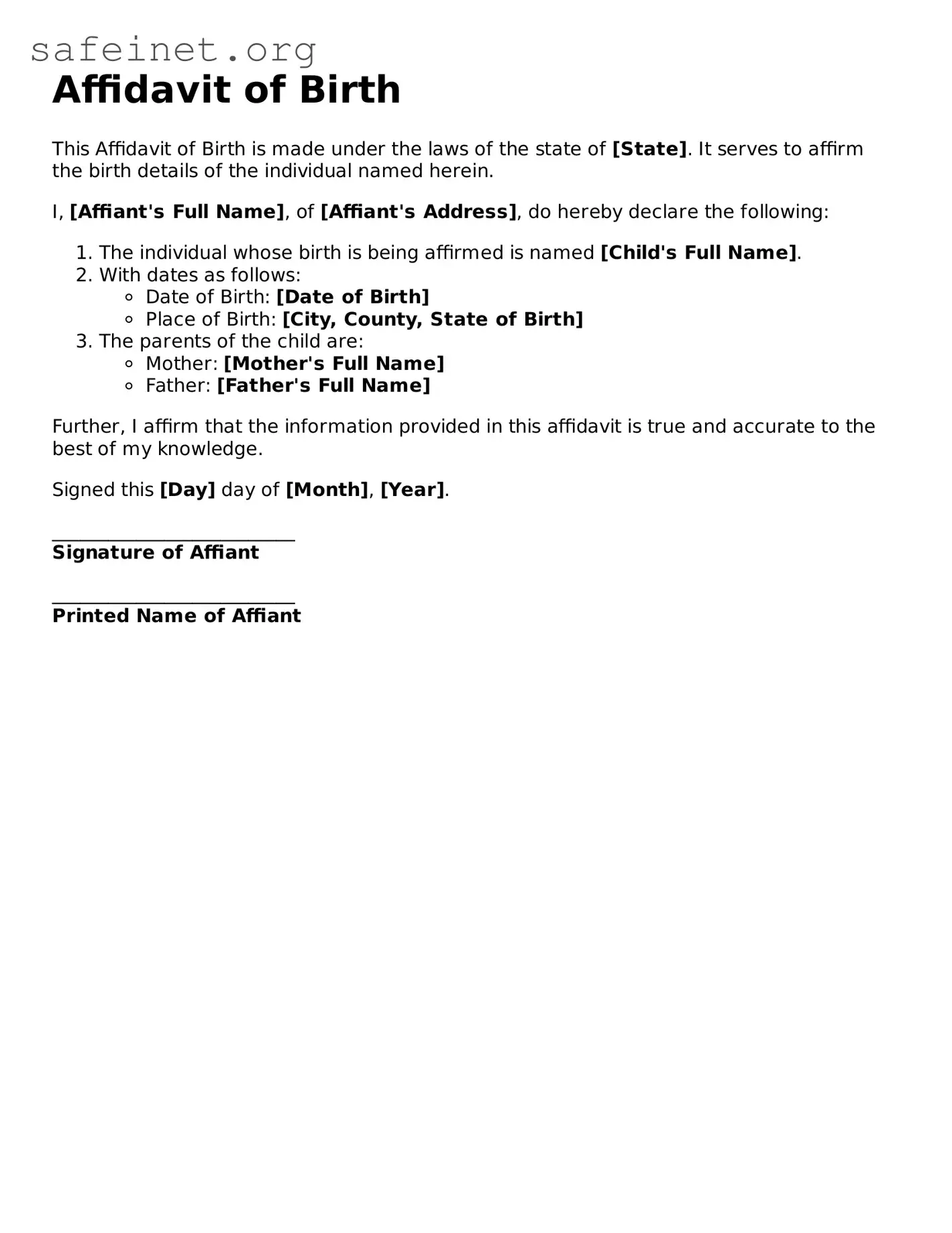The Affidavit of Birth form is similar to the Birth Certificate, which is the officially recorded document of a person’s birth. A birth certificate provides crucial details such as the child's name, date of birth, and parents' names. While the affidavit serves as a sworn statement at the time of birth, the birth certificate is a formal record issued by the state. Both documents establish identity and can be used to acquire other identification forms later in life.
Another document comparable to the Affidavit of Birth is the Certificate of Live Birth. This is a document filed with the state after a birth occurs and is created by healthcare providers. It contains much of the same information as a birth certificate, confirming that a birth took place. However, the Certificate of Live Birth is often used as a preliminary record before the official birth certificate is issued.
The Social Security card also has similarities to the Affidavit of Birth, particularly regarding proof of identity. This card is issued based on the information provided on a birth certificate or affidavit, which serves to establish one's identity and is necessary for employment and government benefits. As such, both documents play crucial roles in confirming a person's identity in various life circumstances.
Another related document is the Adoption Certificate. When a child is adopted, an Adoption Certificate is created to officially record the new legal relationship between the child and adoptive parents. This certificate often reflects the child's new name and may replace the birth record in legal uses, similar to how an Affidavit of Birth serves to acknowledge parentage in specific situations.
The Delayed Birth Certificate is also akin to the Affidavit of Birth, especially for individuals who were not registered when they were born. This document serves as an official state record created after the fact and often requires supporting documents, such as an affidavit, to verify the birth details. Like the affidavit, it aims to provide official recognition of a person's birth when the original registration has not been made.
The Certificate of Naturalization is another important document that ties back to identity verification. This certificate is granted to immigrants who have obtained U.S. citizenship, serving as legal proof of their nationality. Just as the Affidavit of Birth signifies the beginning of a person's official identity, the Certificate of Naturalization marks a significant identity change while establishing citizenship within the U.S.
Similarly, the Passport serves as an internationally recognized document verifying a person's identity and citizenship. When applying for a passport, applicants often need to provide a birth certificate or an affidavit to prove identity and date of birth. In this way, both documents function in establishing an individual's identity for travel and verification purposes.
Lastly, the Voter Registration Form also connects to the Affidavit of Birth, as age and identity verification is an essential part of the registration process. Individuals must provide proof of identity and age before they can register to vote, often using a birth certificate or affidavit as documentation. Both documents ultimately work to ensure that the voter is legally recognized and eligible to participate in elections.
